Congratulations on this exciting journey into motherhood! Navigating pregnancy can feel overwhelming at times, but you don't have to do it alone. With the right advice and care, you can ensure both your wellbeing and that of your growing baby. Ready to dive deeper into essential tips and insights for a healthy pregnancy?

Medical check-up schedule
Regular medical check-ups during pregnancy are crucial for ensuring the health and well-being of both the mother and the developing fetus. Expectant mothers should schedule their first prenatal visit ideally within the first trimester, around 8 to 12 weeks of gestation. This initial appointment typically involves detailed assessments, including blood tests, urine tests, and an ultrasound to confirm the pregnancy and establish an estimated due date. Follow-up visits usually occur every four weeks until 28 weeks, biweekly from 28 to 36 weeks, and weekly from 36 weeks until delivery. Key milestones during these check-ups include monitoring the baby's growth, checking fetal heart rate (typically around 120 to 160 beats per minute), and screening for gestational diabetes between 24 to 28 weeks. Other important evaluations include assessing maternal weight gain, blood pressure, and overall health status to mitigate risks associated with complications such as preeclampsia or gestational hypertension. Timely consultations can also provide crucial vaccinations, such as the Tdap vaccine during the third trimester to protect against whooping cough.
Nutritional guidance
Pregnancy requires a focus on balanced nutrition to support both maternal health and fetal development. Essential nutrients include folic acid, vital for preventing neural tube defects, with recommended daily intake being 400 to 800 micrograms, particularly in the first trimester. Iron is crucial for increased blood volume; pregnant women should aim for 27 milligrams daily, found in lean meats, beans, and fortified cereals. Calcium, approximately 1,000 milligrams per day, is necessary for developing fetal bones and teeth, available in dairy products and leafy greens. Hydration is equally important; pregnant individuals should consume at least 2.3 liters of fluids daily to support increased blood flow and amniotic fluid levels. Additionally, avoiding certain foods, such as unpasteurized dairy and raw seafood, can help mitigate risks of foodborne illnesses. Regular prenatal checkups should accompany nutritional care for comprehensive health monitoring throughout the pregnancy period.
Exercise recommendations
Regular exercise during pregnancy can provide numerous benefits for expectant mothers, contributing to overall physical and mental well-being. The American College of Obstetricians and Gynecologists suggests at least 150 minutes of moderate-intensity aerobic activity per week, such as walking, swimming, or stationary cycling. These exercises enhance cardiovascular fitness, improve mood, and promote easier labor and delivery. Low-impact activities, such as prenatal yoga or Pilates, offer additional advantages by improving flexibility and reducing stress. Staying hydrated and avoiding overheating during exercise, especially in warmer climates, is crucial, as overheating can pose risks to fetal development, particularly in the first trimester. Consulting healthcare providers ensures tailored exercise plans that consider individual health conditions and pregnancy milestones.
Stress management techniques
Managing stress during pregnancy is crucial for both maternal and fetal well-being. Techniques such as deep breathing exercises promote relaxation, allowing oxygen-rich blood flow to the fetus. Practicing yoga tailored for pregnant women helps mitigate anxiety and enhance physical comfort. Regular physical activity, like walking or swimming, releases endorphins, alleviating mood and stress levels. Guided imagery can foster a positive mindset, visualizing calm environments or happy moments to counteract stressors. Engaging in prenatal massage therapy can relieve tension and enhance relaxation. Additionally, establishing a support network with family and friends provides emotional reassurance. Utilizing mindfulness practices fosters presence and reduces anxiety about impending motherhood.
Safety precautions and lifestyle modifications
Pregnancy care involves essential safety precautions and lifestyle modifications to ensure maternal and fetal health. Proper nutrition is crucial, emphasizing foods rich in folic acid, iron, and calcium, such as leafy greens, nuts, legumes, and dairy products. Regular prenatal check-ups, a minimum of one per month until the third trimester, should be scheduled to monitor the health of both mother and baby. Hydration is vital; drinking at least 2.3 liters of water daily helps maintain amniotic fluid levels and prevents dehydration. Regular moderate exercise, like walking or swimming, recommended for 30 minutes, improves circulation and reduces stress. Avoidance of harmful substances, including tobacco and alcohol, is imperative as they can lead to complications such as low birth weight or developmental issues. Psychological well-being should also be prioritized; engaging in relaxation techniques, such as yoga or meditation, can greatly enhance emotional health during this transformative period.

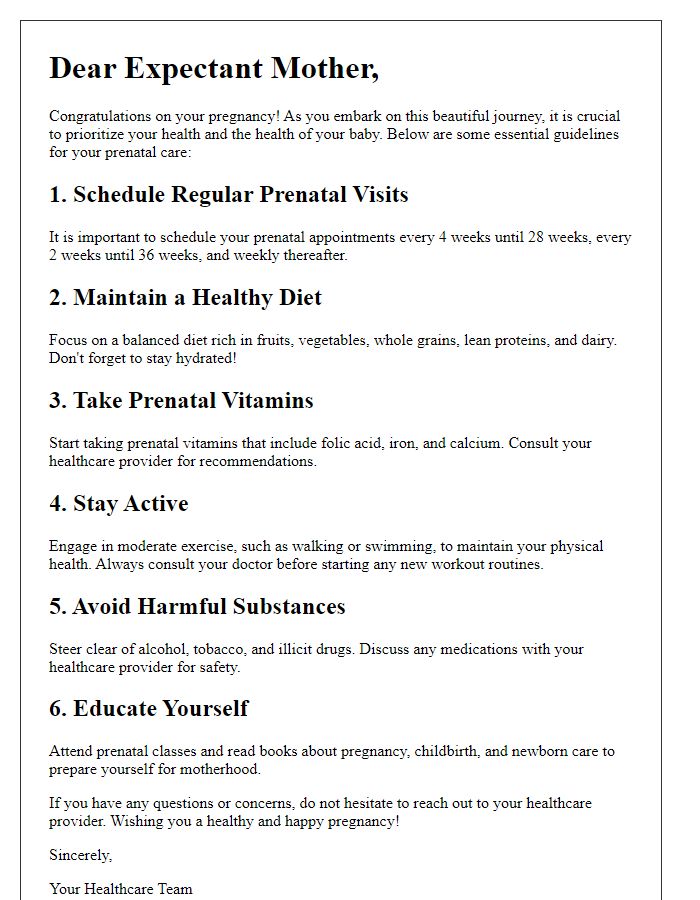
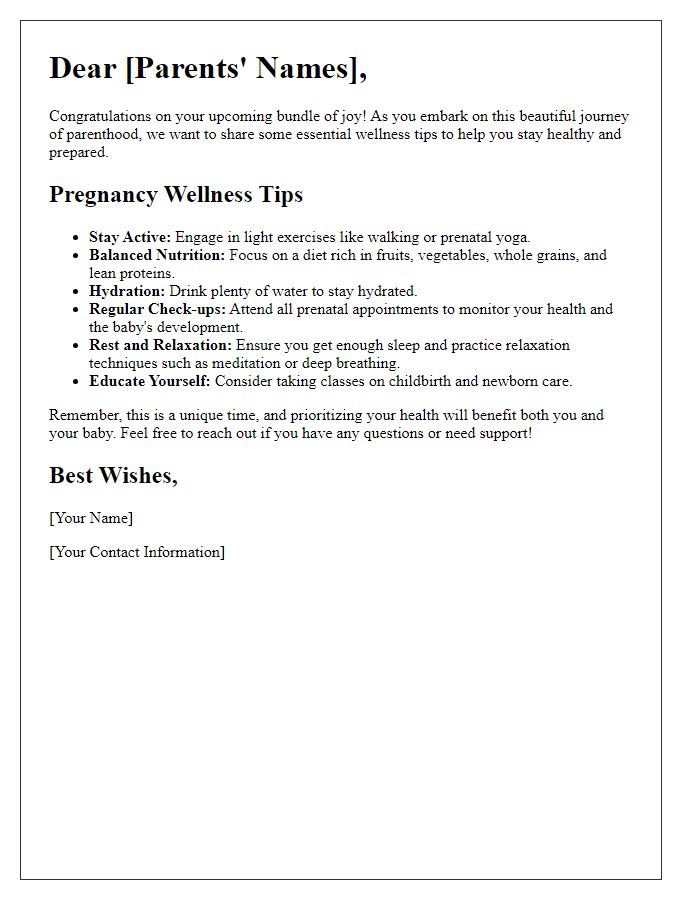
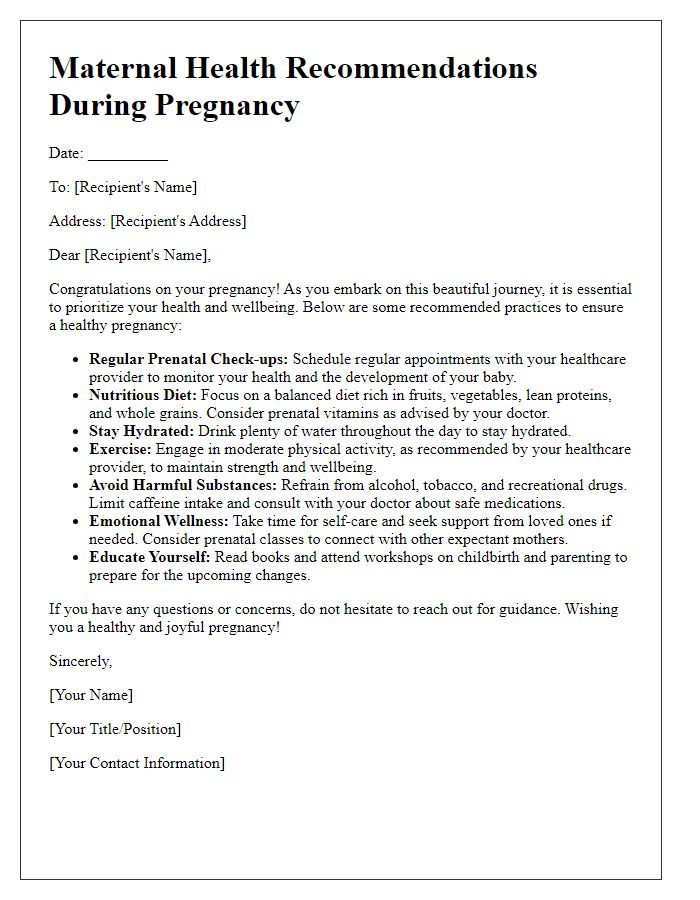
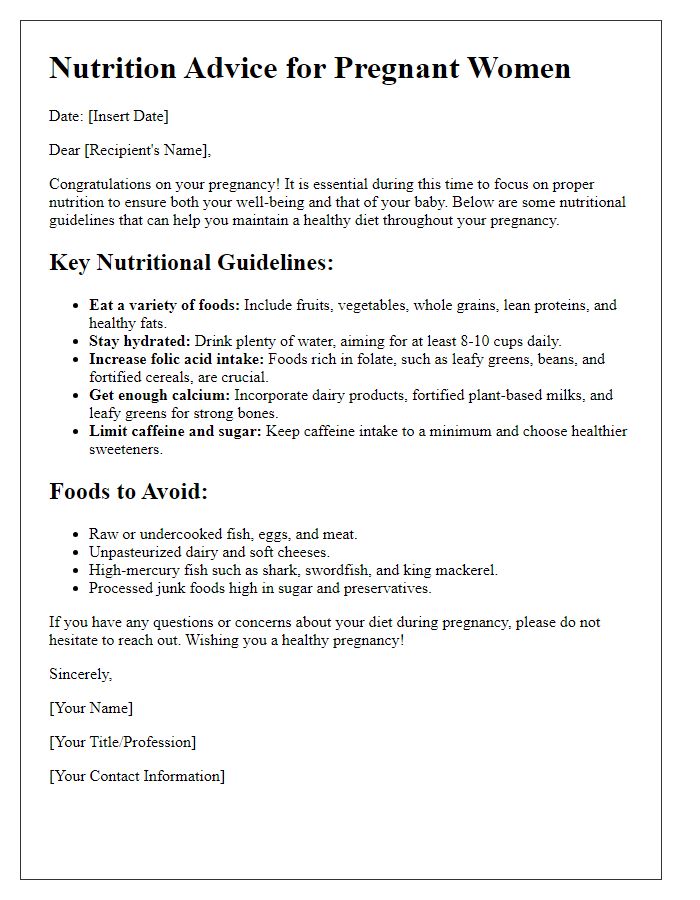
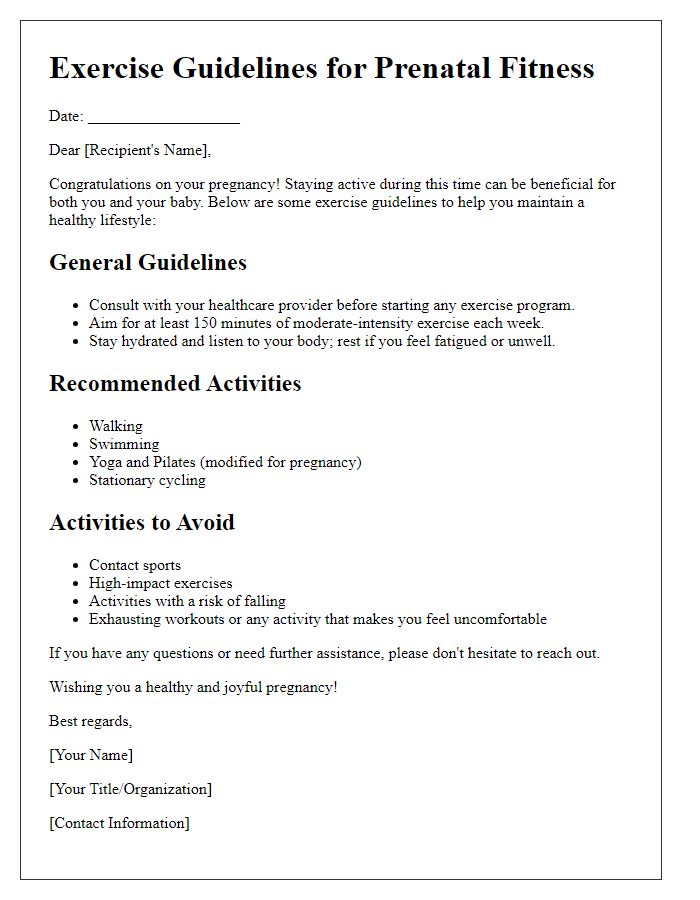
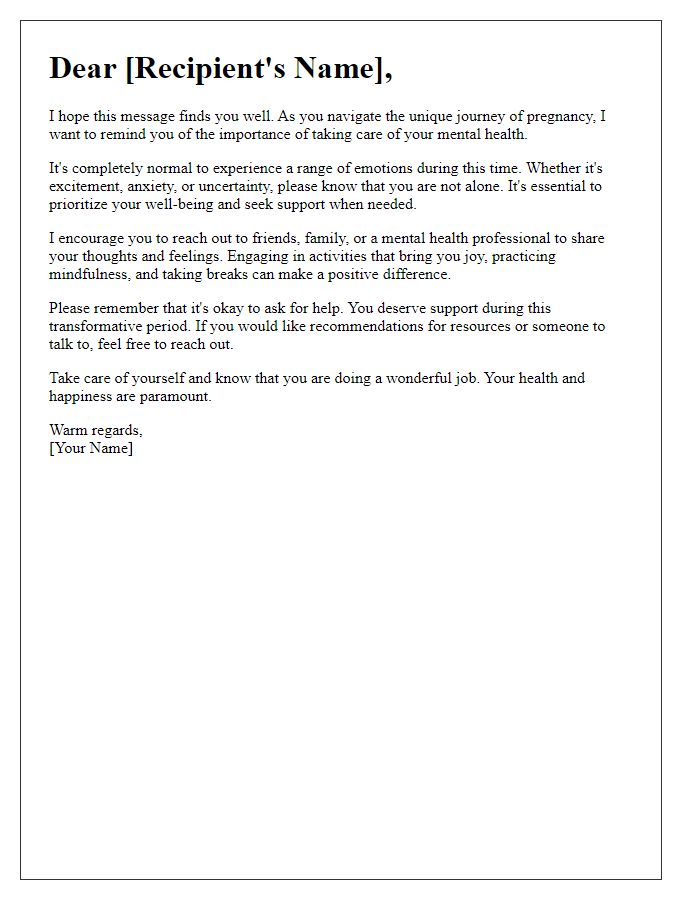
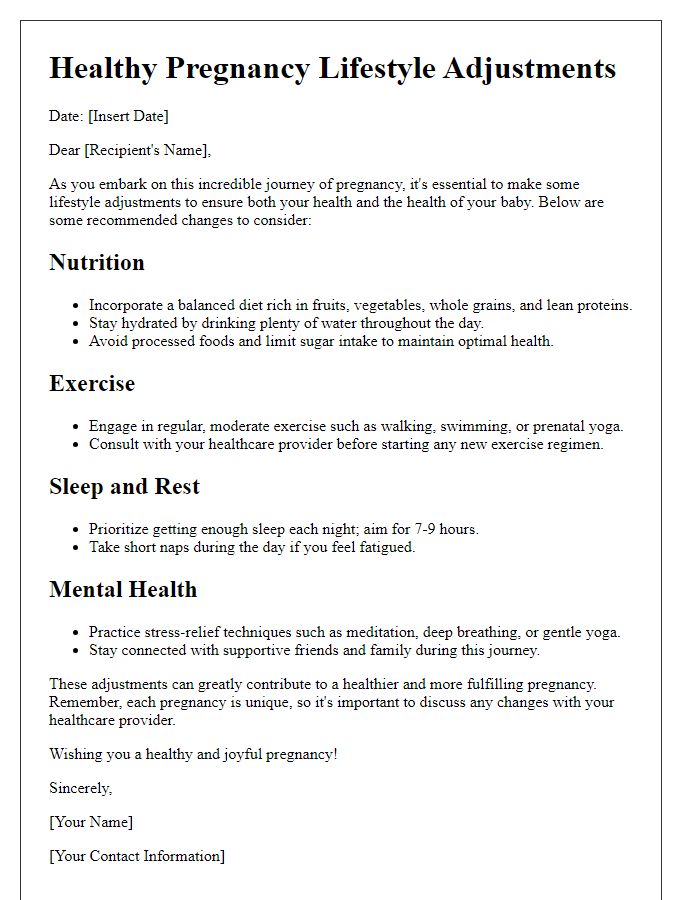
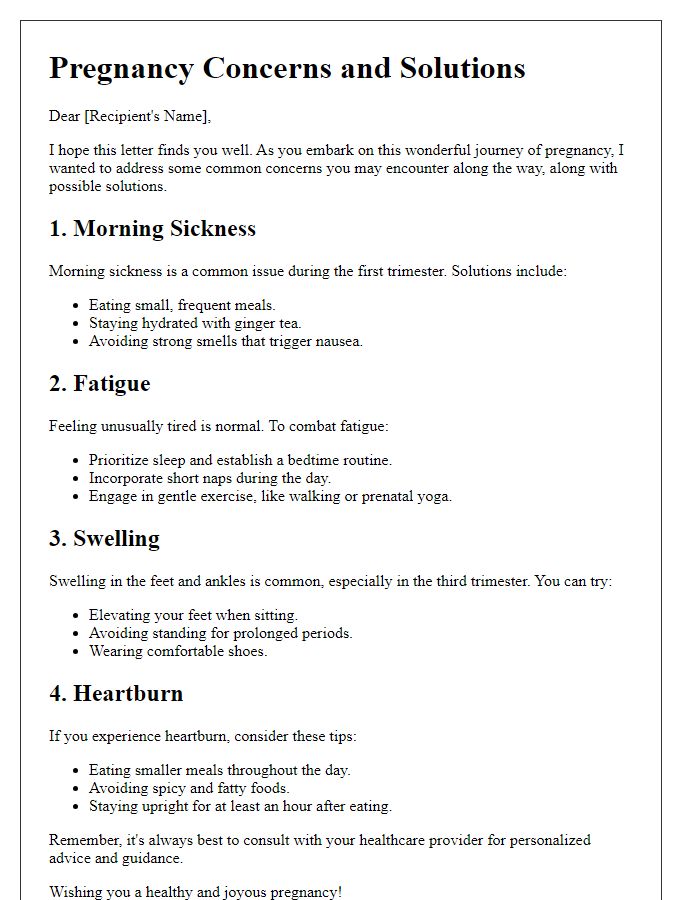

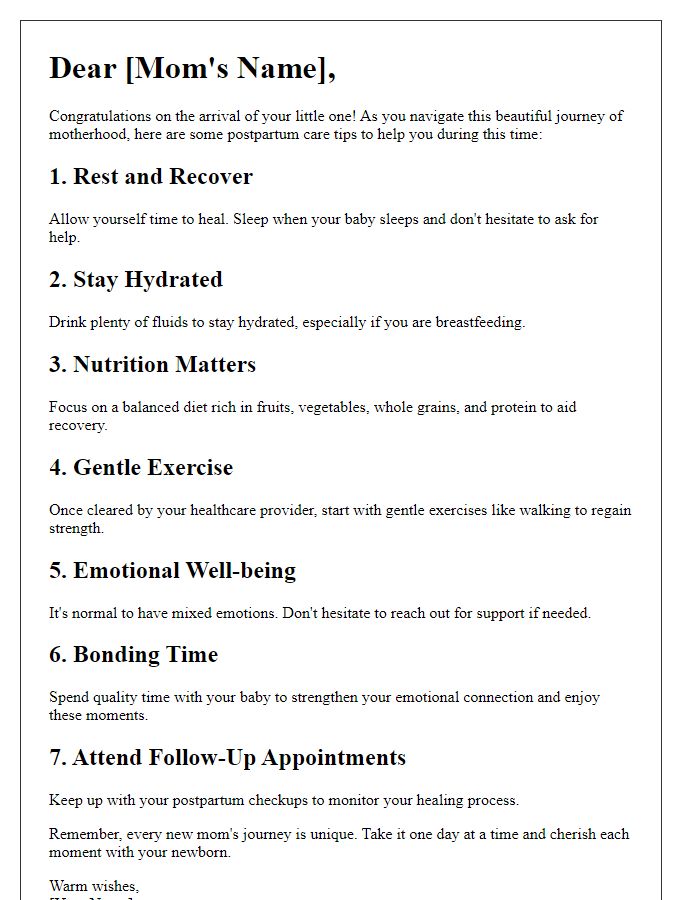


Comments